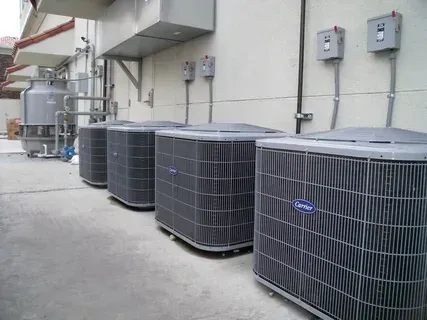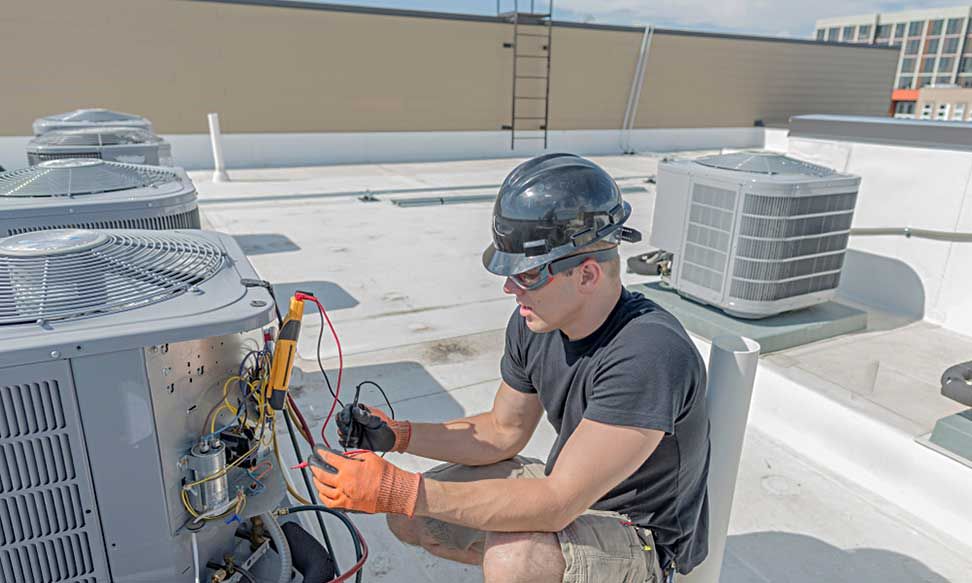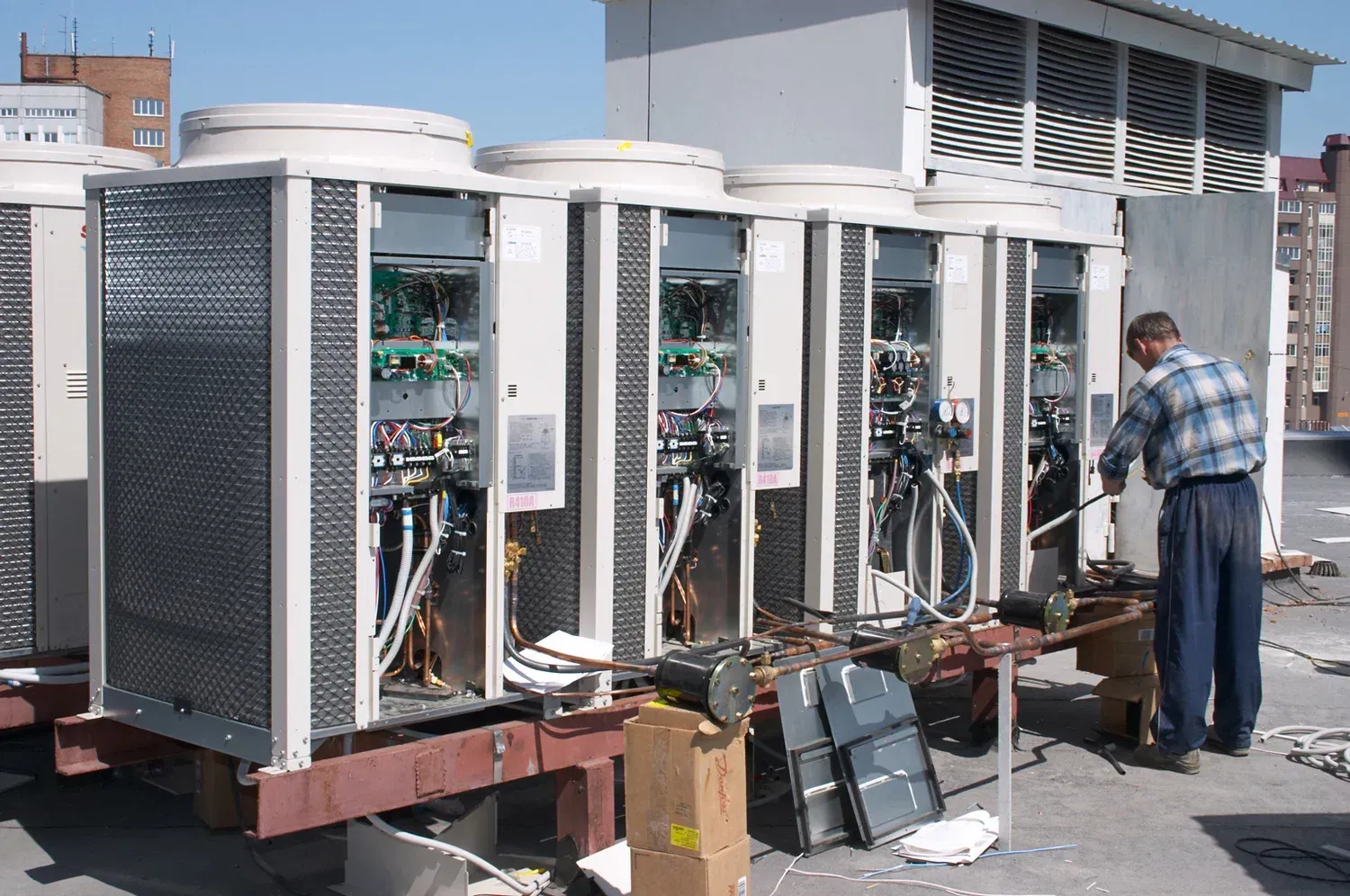Brief History of Heating and Refrigeration Technology
Heating and cold refrigeration stand as fundamental technologies that drive modern comfort features of everyday living. Heating systems make people adaptable to harsh winter seasons and refrigeration systems transform food preservation and industrial processes.
These technologies have evolved across centuries to reshape how we use space in our residences and workplaces and improve worldwide commerce.
Heating and cooling solutions have transformed steadily through time from fire pits to reach the sophistication of HVAC systems to fulfill the needs of society. Ice harvesting progressed into sophisticated environmentally-friendly refrigeration technologies which support modern store refrigeration and air-conditioning equipment.
In this blog we will explore the breathtaking evolution of heating and refrigeration technologies to demonstrate modern advancements. Throughout this blog we will explore significant moments which demonstrate humans' innovative endeavors to manage and control heat levels.
The Origins of Heating Technology
Early Methods of Heating
Prior to modern heating systems early humans kept themselves warm with unenclosed fire pits. Primary heating needs of people prior to modern systems were fulfilled through wood fires lit both inside homes and out at campsites. People used to burn dried wood to create warmth and defense against winter temperatures.
At about 2500 BCE the world saw advancements in efficiency through enclosed fireplaces and chimney systems. Romans achieved heat revolution via their invention of "hypocaust" technology. The remarkable innovation offered better comfort because heaters dispersed heat through controlled air movements below building surfaces.
The Advent of Modern Furnaces
Standard heating systems based on cast iron stoves and steam arrived in widespread use across the world during the 1700s and 1800s. Cast iron stoves showed better reliability and energy efficiency than traditional open hearths. Industrial advancement created furnaces powered by coal during this period. The development of central heating systems eventually took place.
During the late 19th century boilers paired with radiators rose to dominance as the primary heat technology for extensive buildings. The growing technology during the twentieth century introduced safer gas-fired furnaces as well as electric heaters to create easier heating systems for users.
The Foundations of Refrigeration Technology
Ice Harvesting in the Early Days
Human beings have practiced ice harvesting since the beginning of refrigeration systems. Throughout winters residents extracted ice blocks from frozen lakes and ponds. During the summer periods the ice was maintained in insulated facilities for preserving food. Refrigeration at this stage consumed an intense amount of human labor which enabled its availability only to wealthy families.
The Birth of Mechanical Refrigeration
History moved toward a central breakthrough in refrigeration systems manufacture during the 1800s. In 1755 Scottish scientist William Cullen obtained artificial cooling by applying chemicals to evaporate. This pioneering discovery eventually created opportunities for contemporary developments.
Carl von Linde built the first commercial refrigeration system during 1876. Using ammonia as its coolant mechanism enabled the system to expand access to perishable goods preservation safely. Without mechanical refrigeration the food industry and medical sectors and transportation would operate at a different pace.
Modern Heating and Cooling Systems
Advances in Central Heating
Central heating technology started developing when the twentieth century began. Utility consumers gained access to both gas boilers and fuel-efficient furnaces and electric heaters for residential and business heating needs.
Accurate temperature management has been made possible through additional advancements in HVAC (heating ventilation and air conditioning) systems. Smart heating controls enable users to set programmed heating schedules while reducing their energy expenses.
Transition to Eco-Friendly Heating
Technology solutions today focus on increasing power efficiency and adopting sustainable practices. Modern heating industry technology includes heat pumps along with solar engagement and geothermal methods that guide heating toward more sustainable energy solutions. The technology allows organizations to decrease emissions while conserving power with stable heat delivery.
Evolution of Modern Refrigeration
Customer access to cooling systems greatly improved through technological progress during the 20th century at both affordable and efficient levels. Little homes received their first refrigerators while industry received advanced cooling technologies that transformed both household routines and industrial production and distribution. CFC-based coolants delivered improved refrigeration performance during the middle part of the twentieth century.
Environmental concerns inspired the development of environmentally sustainable refrigerators. Modern advanced cooling technologies operate using environmentally friendly refrigerants. Commercial refrigeration systems achieve dual sustainability and energy optimization through integrated advanced monitoring technology.
The HVAC Revolution
Heat and refrigeration technologies have transformed into unified HVAC systems that bring together all climate-control features in one system. The HVAC industry maintains its innovative focus on developing products that balance user comfort systems and environmental targets.
The intuitive design of smart HVAC systems combines consistent efficiency with connectivity options. The systems understand user preferences along with optimizing energy consumption to minimize waste. Integrated systems improve air quality in addition to reducing operational costs and delivering user convenience.
Future Trends in Heating and Refrigeration Technology
Renewable energy innovation along with artificial intelligence advances shape the future developments of heating and refrigeration systems. Sun-powered solar arrays and underground thermal reservoirs will lead the way in heating technology through the next decades. Systems will benefit from artificial intelligence to predict user demands while simultaneously boosting energy performance.
Sustainability continues to be important because governments and businesses actively promote eco-friendly technologies. Research into zero-emission cooling systems alongside net-zero buildings has emerged as the main catalyst to reshape heating and refrigeration innovation and development.
Importance of Heating and Refrigeration Services
Proper maintenance of heating and refrigeration systems allows them both to use less energy and reach optimal performance while extending their operational lifespan. System maintenance both diminishes expensive maintenance costs and enhances power efficiency thus reducing your monthly utility payments.
Expert installation along with regular maintenance services protect your safety and maintain proper functionality of your systems. Qualified technical workers serve an essential role in fixing old heating units while providing new air conditioner installations and maintaining commercial refrigerators.
Conclusion
Homes have transitioned from primitive fire pits and ice harvesting through development of sophisticated HVAC systems which run modern lifestyles. Modern innovations provide better household comfort together with industrial sector transformations and healthcare breakthroughs and global trade advancements.
Continuous efficiency and sustainability goals drove field changes that created eco-friendly technology such as heat pumps and premium refrigerants alongside optimized systems. Advanced technology and intelligent control systems demonstrate their ability to optimize power consumption while enhancing system performance combined with environmental protection goals.
New renewable power sources together with artificial intelligence systems will deliver innovative environmentally-friendly solutions for the future. Investment in sustainability and innovation helps these technologies thrive in their present form to provide enriched life while decreasing environmental harm.
FAQs
What standard maintenance tasks must heating systems undergo?
Annually scheduled maintenance procedures include filter cleaning followed by connection assessment leading to airflow verification. Well-kept maintenance schedules consistently extend the functional lifespan of these heating systems and drive back equipment malfunctions.
What steps should I take to boost the energy efficiency of my air conditioning unit?
For improved efficiency keep your air filters clean and check for leaks before scheduling professional yearly maintenance.
Do you provide urgent service options for refrigerators and HVAC systems?
Emergency repair services stay available night and day from numerous experts in this field. Regular service preserves comfort levels within your house or business throughout all seasons.
You might also like



Book a Service Today
We will get back to you as soon as possible
Please try again later
Quick & Reliable
Need AC Repair or Maintenance? Give us a call.
Clear HVAC Service Pricing
We like to be transparent in our pricing.
$189
Tune Up, Two Units
One time tune up for two residential units per home with filter replacement.
Caledonian Mechanical Inc | CL#1021531 | Web Design by Ashmith

